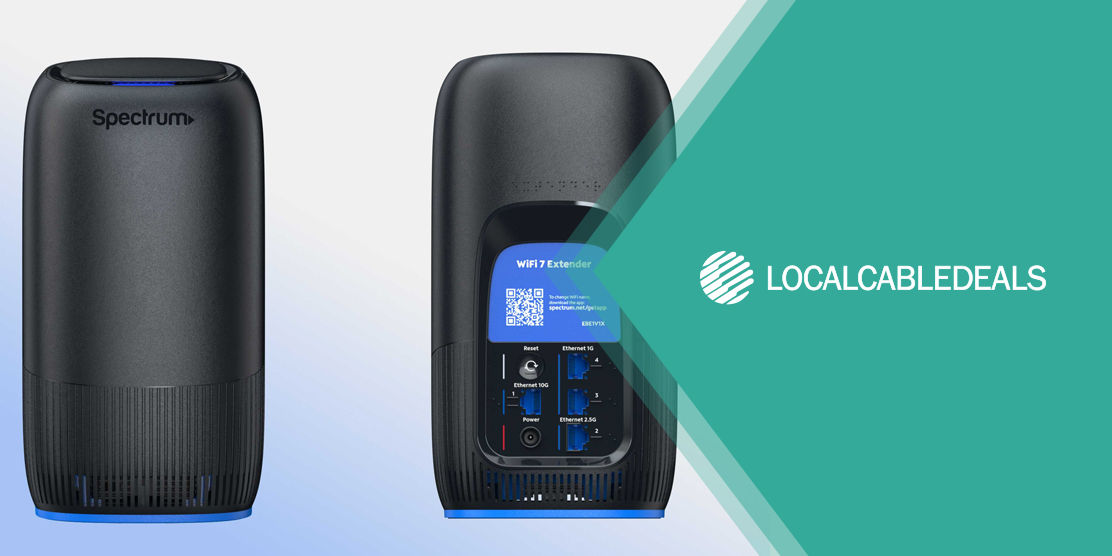Everyone uses the internet for their own specific needs, like running a business, taking classes, or streaming videos. However, not many people have an idea about what goes on behind the curtain or how their connections work. Just signing up for the next-available internet plan is not enough. You need to know the kind of speeds you require and the kind of speeds you’re getting in the market. But what if words like megabits, bandwidth, or latency confuse you? You can easily find yourself under pressure and make the wrong decision. This will not only impact your overall lifestyle but leave you with an insufficient or overly-compensating speed tier that you’re not comfortable with. So, how can stay on top of ISPs and their offers? Why should you subscribe to one internet package and not the other? What is a good download and upload speed? Let us help you through this. You need to know about it so that you don’t end paying extra for snail-speed internet.
What is Internet Speed?
First of all, what is internet speed? It is the speed at which data travels from the web to your personal devices and vice versa. This data could be anything from videos, files, documents, photos, and audio clips to a single line of text. Internet speed is usually measured in megabits per second or Mbps.
What does Mbps Stand For?
Mbps stands for “megabits per second.” It is a standard, which is usually used to denote internet speed. Bits are units of digital information that travel over the online landscape between connected nodes. Mbps measures how many bits can be transferred in one second. 1 Mbps is 1000 times faster than a kilobit per second (Kbps). Some people may confuse megabits per second (Mbps) with megabytes (MB), which is a totally different thing, as it measures the size of data rather than its bandwidth speed. There are normally 10 to 1000 Mbps speed packages available for internet users in the market. Visit here for more information.
What is Ping?
Ping is a test that verifies the speed of your internet connection, the responsiveness of the server, and also its reachability. It sends a packet of data to the server and checks how long it takes for it to come back. It measures this delay in milliseconds (ms). Data travels from your computer to the server and then back by which its speed is calculated. High ping means your internet connection is slow, which is why you might face lag while gaming, streaming, or uploading files.
What is Latency?
Latency is the total round trip time of data traveling from a source to its destination. Internet speed is a combination of both bandwidth and latency, which is determined during a ping test. It is measured in milliseconds (ms). Let’s take an example to further simplify this definition. If a person sitting in the US is playing a game with a server operating in China, then they will experience higher latency as compared to the person playing the same game in China.
What is Download Speed?
Download speed is the speed your internet connection requires to send data from a different location on the web to your computer. It is measured in Mbps. Download speeds are faster than they upload, especially on a cable or DSL connection. Why? Because people pull down information from the web more often than they send up there. So, if you have a good download speed, you can surf, stream, game, shop, or play your favorite tune online without hassle.
What is Upload Speed?
Upload speed is the speed your internet connection requires to send data from your devices to anywhere on the web. It is measured in Mbps. Upload speeds are important when you want to video chat with your colleagues or FaceTime with your loved ones. It’s also crucial for businesses that rely on cloud computing and are in the habit of sending large files over the internet frequently. A good upload speed ensures a seamless digital presence on the web.
What is the Difference Between Download and Upload Speed?
To put it simply, download speed is all about retrieving data from the internet, while upload speed is all about sending data to the web.
Top-of-the-line internet services such as Spectrum and Cox usually offer a much faster download speed in their plans and packages as compared to the upload. The reason for this is that a majority of your online activities require downloading. Whether you are merely browsing, streaming a short video clip, or saving an online photo to your device for offline viewing, your internet connection’s download speed is involved actively. Upload speed is usually one-tenth of the download speed. While advertising internet plans, some service providers don’t even mention the upload speed or do so in a very offhand-ish manner. How to increase upload speed? Go for a Fiber internet plan that offers symmetrical download and upload speeds, or upgrade your current speed by calling your ISP.
How is Internet Speed Measured?
Most people will check their internet speed by timing downstream or upstream of data. Meaning, how much time it takes for the data to travel according to the user’s action. Speed of the internet is typically measured in bits per second, but as we are talking about thousands of values at a time, we prefer to use prefixes K, M & G to show how many bits of data we’re suggesting. K=1000 bits, M=1000,000 bits or 1000K, G=1000,000,000 bits or 1000M. Normally, we use Mbps to measure the speed of internet connection as Kbps is too low and Gbps is too high.
How do I Calculate my Current Speed?
That can easily be done by taking an internet speed test, but you will need an internet connection for that. Most online speed checking tests will show ping time. Data travels from your computer to the server and then back and shows the difference between download and upload speed, by which the speed of your connection is calculated.
Why is Download Speed Important?
If you are using the internet at home, download speed will matter more to you than the upload speed. Whether you are browsing the web, retrieving files for homework, or simply watching a funny video that your friend shared, you are constantly using the download speed and because of that matter, it forms the foundation of your online activity. From streaming Netflix to scrolling social media feeds, you are depending upon download speed.
Why is Upload Speed Important?
Upload speeds are important for operating businesses. A startup needs to have an internet connection with a good upload speed for video conferencing or sending large files or sharing documents over the web. Uploading videos on YouTube or assignments on e-learning portals, using Skype, or uploading files on the cloud for storage – all require a good upload speed.
How Much Speed Do I Really Need?
This depends upon your internet usage and the number of devices you have connected to the web. An increase in the number of devices and users will consequently lower the performance of your internet if you have a sub-par speed package. However, 12-25 Mbps speed has been recommended by the Federal Communication Commission (FCC) for households doing regular online streaming and having multiple internet users. What is a good Wi-Fi speed for you? Let’s figure it out below.
What is a Good Download and Upload Speed for Working?
If your work involves active uploading and downloading, then you will require an average internet speed of 40 Mbps to operate your business. The download speed could be between 10 to 40 Mbps, and the upload speed can range from 1 to 4 Mbps, depending on your nature of work. Here are a few recommendations for remote workers:
- More than 10 Mbps is recommended for large-group video conferences.
- More than 40 Mbps is recommended for transferring large files.
- Around 3-4 Mbps is recommended for checking emails and other basic stuff.
What is a Good Download and Upload Speed for Streaming?
A good download speed for streaming on a single device is 25 Mbps and a good upload speed is 3 Mbps. However, each streaming service comes with its bandwidth requirement. Check them out below:
- YouTube suggests at least 3 Mbps internet speed for streaming videos in standard definition. If you have multiple devices connected, you’ll need at least 13 Mbps.
- Similarly, Netflix recommends 3 Mbps as well for streaming videos in standard quality. But as the video quality progresses, it will need more speed. For HD videos, it recommends a 5 Mbps download and for HDR videos, it suggests a 25 Mbps download speed for a single user.
- For streaming live TV through DirectNow, an average of 2.5 Mbps speed is recommended.
What is a Good Download and Upload Speed for Gaming?
If you are an active player, you must know that internet speed matters a lot. You will need a good and efficient broadband speed so that your game landscape can load faster and your actions can be uploaded to the server in time. A minimal speed of 4-8 Mbps is required, but for a smooth gaming experience, 25 Mbps internet speed is recommended. When talking about speed, latency, and ping time also matters when you are actively gaming. Keep those in mind.
What is a Good Download Speed for Watching a Movie Offline?
It depends on the size of the movie, honestly. If you’re planning to watch a high-quality movie that has a 4GB file size, then a 1 Mbps download speed will take 9 hours for it to download on your device. Whereas, a 1000 Mbps speed will download your movie within 34 seconds. So, what is a fast download speed for saving a movie on your device? 25 Mbps. It will download a 4GB file within 22 minutes, which is an acceptable wait time. Don’t you think?
What is a Good Upload Speed for Sending a Video to Your Friend?
To upload a video on the web, check the size of the file, first. A 500MB clip paired with a 1 Mbps upload speed will take about an hour. Whereas, if your upload speed is 500 Mbps, it’ll take just 8 seconds for that 500MB sized clip to upload. A good upload speed, in any case, would be somewhere between 3 to 5 Mbps. You’ll only have to wait 15 to 20 minutes roughly for your file to upload.
What is a Good Internet Speed?
Above 25 Mbps is considered good internet speed for HD streaming, browsing, gaming, and other online activities. Internet plans that offer more than 100 Mbps are for households having multiple users.
How Fast is 25 Mbps?
It is the optimum speed for an average internet user. It is neither too fast nor too slow. If your internet usage is not extensive and you do not require ultra HD streaming, then it’s the perfect plan for you. You will be able to stream 1080p quality YouTube videos and watch Netflix without buffering. You will also be able to play online games without any lag.
What is Slow Internet?
A slow internet connection may cause you to face various issues like buffering or lagging. A download speed that is less than 25 Mbps is considered slow by FCC. When less than 25 Mbps is recommended, it is usually for a single user, and any other factor will contribute to slowing down the speed of your internet connection. Moreover, an upload speed that is less than 0.5 Mbps is also considered slow.
Which Internet Connections Are Slower?
Dial-up: It only offers 56 Kbps and is considered very slow, no matter what online activity you are conducting.
DSL: It is a copper internet connection that provides a low-speed experience of fewer than 25 Mbps. However, DSL does have faster speed packages if you can afford them.
Fixed Wireless: Depending upon the location and the provider, a fixed wireless connection can offer internet speed ranging from 3 to 100 Mbps, but inclines to operate on the lower end.
Wrapping Up
You must choose an internet service that meets all your speed requirements. To do that, you need to figure out what is a fast internet speed and what constitutes a slow one. This post helps you do just that. You’ve learned what is a good download and upload speed, how to measure it, and which speed thresholds are recommended for different online activities. You’re ready to select the best internet plan now. Good luck!



